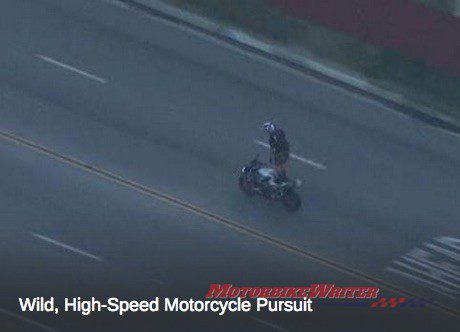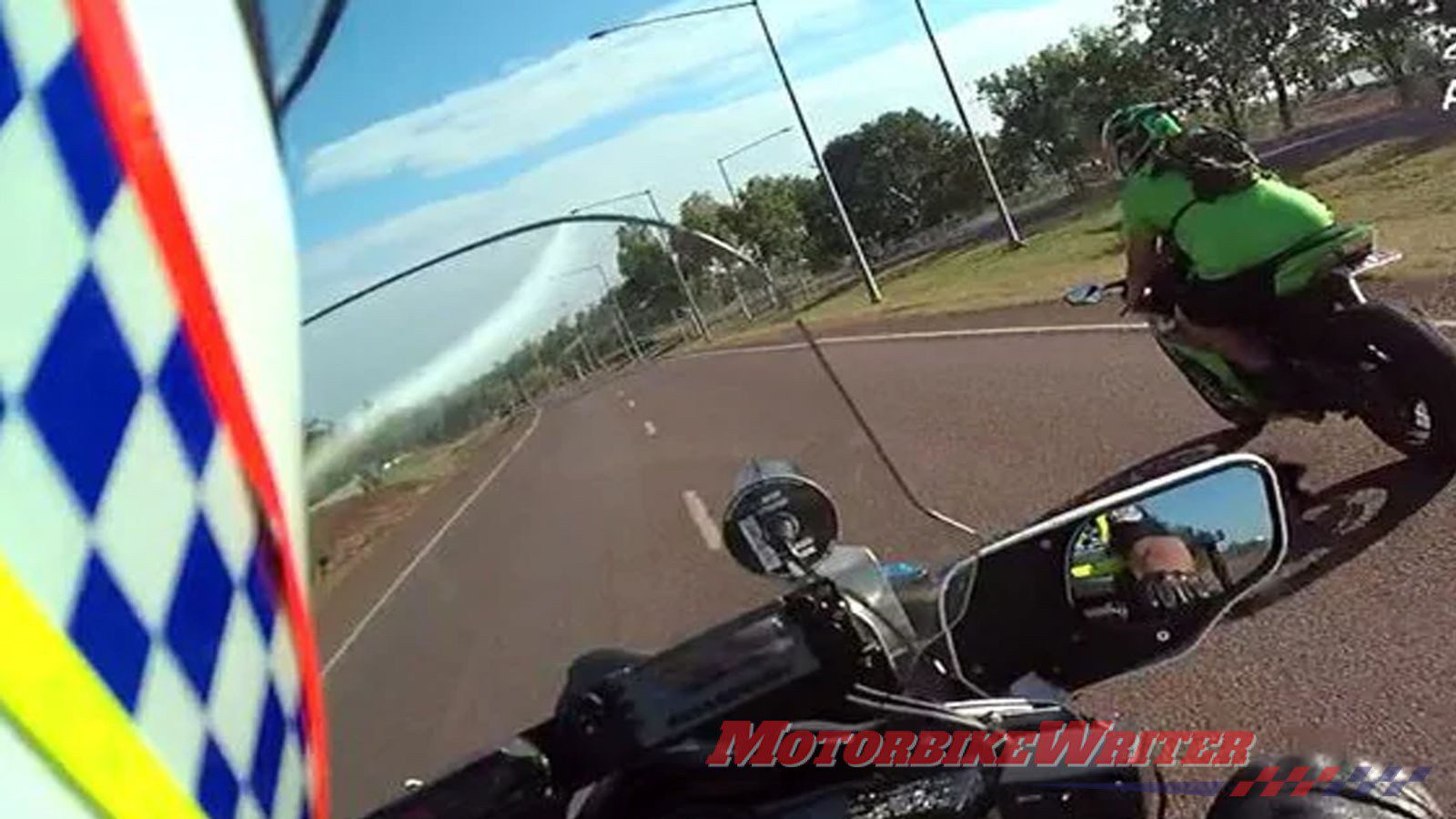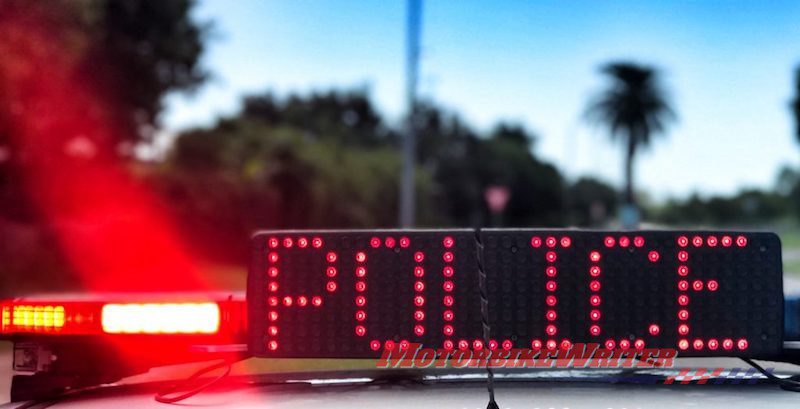A rider who evaded Northern Territory Police and sped away at up to 280km/h on a Kawasaki ZX-10R is still on the run.
NT Police say a motorcycle cop tried to intercept the rider when he noticed the false “XPLOD” plate on the back of the black-and-green Kwaka on about 9am on Monday (13 May 2019) on the Stuart Highway near Palmerston.
The rider initially slowed, but then sped up to 280km/h through the Temple Terrace intersection.
drive so others survive.”
Police did not give chase and the rider remains unidentified.
The rider was last seen wearing a lime green coloured shirt, black shorts and a green and black helmet with a gold iridium visor.
Is it any wonder members of the public think riders have a death wish when they see a minority riding at high speeds and not wearing protective gear!
If you have information which may identify the rider you can contact police on 131444 or anonymously contact Crime Stoppers or call 1800 333 000.
Hooning charges
The rider faces speeding and hooning charges.
If it’s their first offence, their bike would be impounded for 48 hours and cop a $220 fine and three demerit points.
Fines escalate and the rider could face jail time if it’s their second offence within a two-year period. Their bike could also be impounded for three to six months.
For a third hooning offence, the court can forfeit and dispose of the bike and the rider could face even tougher fines and jail.
If the bike is stolen, it will be returned to the owner.
It is unlikely a person will be sold a vehicle subject to a current impound or forfeiture order.
Had the rider pulled over, they faced a $300 fine for the false plate.
Police pursuits
A leading police study has found the three most pressing issues for police reform around the world are use of force, policing of violence in families and high-speed pursuits.
A 2009 Australian Institute of Criminology study found deaths in custody at police stations are declining but “deaths in custody” as a result of high-speed pursuits were rising.
While less than 1% of police pursuits results in a fatal crash, 38% of the people killed are innocent bystanders.
It’s much worse in the USA where one person dies every day as a result of a police pursuit. Of those deaths, 1% are police, 55% suspects and 44% bystanders.
Most police procedures acknowledge the judgement of the officer at the scene to begin a pursuit.
However, continuation of the pursuit is then deferred to a senior officer at the station or headquarters.
They have to make a quick judgement based on the lethal risk to the community of the chase versus the lethal risk to the community of letting a serious offender escape.
This must be backed by information, not just mere suspicion.
Queensland police figures show only about 3% of pursuits involved imminent threat to life or a suspect escaping after a homicide.
Police have a duty to not only prevent and control crime, but more importantly, they have a duty to protect the community and that includes from their own reckless behaviour and judgement.



Restrictive practices
Despite criticism from police unions, most pursuit policies around the world, including the USA, are becoming more restrictive.
In many jurisdictions, pursuits are only allowed if there is a serious risk to public safety or in relation to a major crime involving death or injury.
However, there is an issue about making these pursuit policies public. Some say they should be public to show transparency while others believe it would give criminals clues on how to evade police.
Those who support pursuits point out that the number of people evading police is rising as a result of more restrictive pursuit policies, despite higher penalties for evading police.
Making the issue more complex is the degree of the pursuit.
Should there be an upper speed limit for police? Should police be allowed to break other road rules in the pursuit?
There have been incidences of police driving at more than 200km/h in a pursuit and on the road side of a major highway.
Another issue is whether police should be criminally culpable in the instance of a death resulting from a pursuit.
To a degree, technologies such as CTV and number plate recognition cameras, negate the need for pursuits, anyway.




